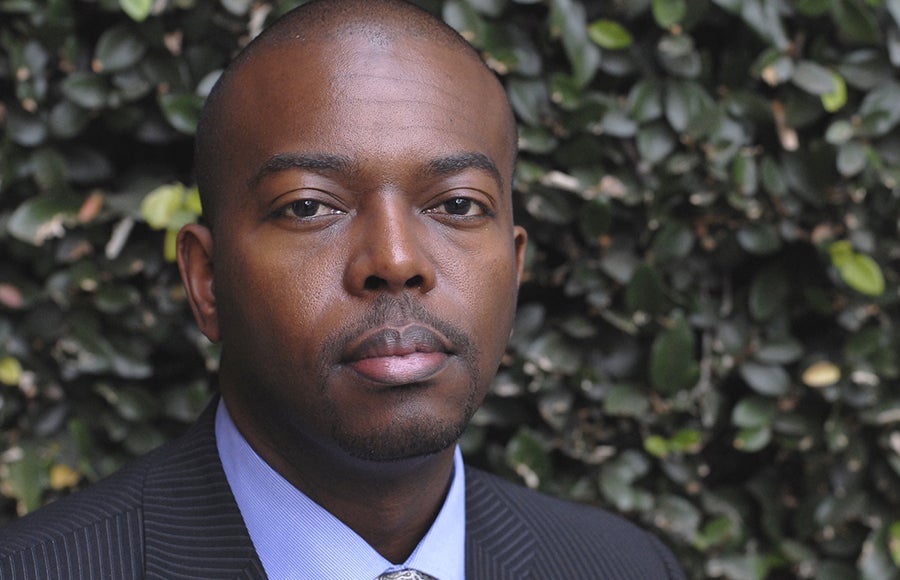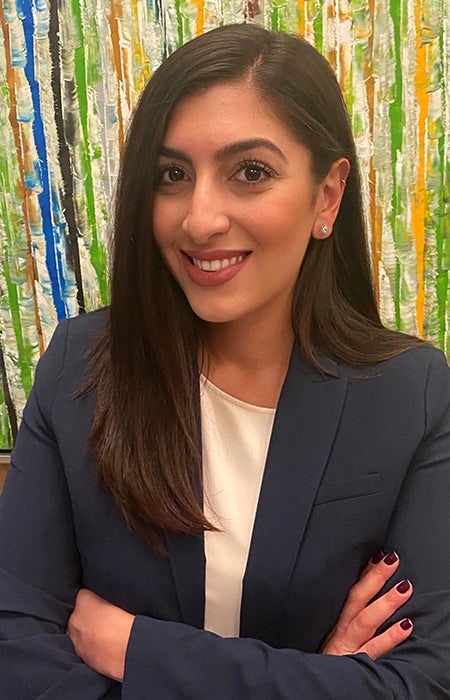
USC Dornsife professor wins California Supreme Court case
The family of Darren Burley, a Black man who died in 2012 after a Los Angeles County sheriff’s deputy knelt on his neck and back, saw their original $8 million damages verdict reinstated by the California Supreme Court last month. The unanimous ruling comes thanks to the work of civil rights lawyer Olu Orange, director of the USC Trial Advocacy Program (Mock Trial) at USC Dornsife College of Letters, Arts and Sciences.
In the Aug. 10 ruling, the court struck down a 2018 appeal that had reduced the family’s damages by $3.2 million.
Justice Goodwin Liu compared Burley’s death eight years ago with that of George Floyd, who died this year after a Minneapolis police officer knelt on his neck for nearly eight minutes, sparking worldwide protests against police brutality and systemic racism.
In his opinion, Liu wrote, “In all likelihood, the only reason Darren Burley is not a household name is that his killing was not caught on videotape, as Floyd’s was.”
Orange agrees.
“Video-taped or not, these killings caused by police misconduct are wrong. Attention needs to be brought to them and they need to stop,” says the adjunct assistant professor of political science.
Yasmin Fardghassemi, who earned a bachelor’s degree in political science from USC Dornsife in 2010, aided Orange in winning the original civil case in 2014. She went on to earn a law degree at UCLA.
Death by asphyxiation
The incident that led to Burley’s death occurred on Aug. 3, 2012, in the City of Compton, when L.A. County sheriff’s deputies were called to the scene after Burley, 29, assaulted a pregnant prostitute.

Burley, who was under the influence of a cocktail of drugs at the time, resisted arrest and was wrestled to the ground by several sheriff’s deputies.
According to the 2014 court account, three officers used a taser on Burley repeatedly, while others restrained him. One officer, David Aviles, using the same maneuver that resulted in Floyd’s death, knelt on Burley’s neck and back, asphyxiating him. Aviles weighed 200 pounds.
Burley died and was revived at the scene, then died again 10 days later in hospital. Aviles has not been charged for his death.
“In this incident, the police were rightfully called to intervene for the woman’s safety,” Orange said. “The issue here is that what they did in response was drastically and woefully excessive, and they killed him.”
Courtroom drama
While the defense in 2014 claimed that Burley died as a result of a chemical reaction to the drugs he had taken, Orange and his team argued that the cause of Burley’s death was asphyxiation.
Orange recalls a dramatic reenactment at that original trial where the defense attorney for the sheriff’s department asked the deputies to demonstrate how they had restrained Burley.
As the defense attorney, playing Burley, lay on the court room floor, six deputies piled on top of him.
“Then Deputy Aviles came over and positioned himself with one of his knees at the base of the defense attorney’s neck and the other knee on his back, right above where his diaphragm would be,” Orange said. “Within a few seconds, the defense attorney’s face started turning red; it looked like it was hard for him to breathe.” The judge, concerned for the attorney’s well-being, then intervened to end the demonstration.
Orange recounts another key moment in the trial when the defense called a sheriff’s department investigator who had not seen the reenactment. “We asked him, ‘Is restraining someone by putting your knee at the base of their neck a departmentally sanctioned tactic?’ He said, ‘Oh no, absolutely not. That would be excessive force.’”
A phenomenal experience
To bolster their argument that Burley did not die from asphyxiation, the defense called an expert to testify. When Orange had a scheduling conflict, he asked Fardghassemi to cross-examine the asphyxiation expert on his behalf.

“We argued that cutting off the oxygen stopped Burley’s heart and brain and he died. The defense claimed that his heart stopped because he went into arrhythmia due to consequences of the intoxication,” Orange said. “So, it was crucial for Yasmin to be able to shoot down the testimony of their asphyxiation expert.”
Fardghassemi, who had been a leading participant in Orange’s Mock Trial program, leapt at the chance. She had been a daily assistant to Orange during the 41-day trial and knew the evidence thoroughly.
“I knew that I would learn a tremendous amount about trial preparation, witness preparation and evidentiary arguments,” she said. “Professor Orange reassured me that he has faith in me and that I would be able to do a good job.” Nevertheless, she was aware of how much was riding on her performance in court.
Prior to cross-examining the expert witness, Fardghassemi thoroughly researched his prior testimony.
“She found instances of testimony where he conceded and even supported the idea that applying weight in certain places causes asphyxiation,” Orange said. “I had absolutely no doubt that she would be magnificent in court.”
Fardghassemi credits her Mock Trial training for her success in cross-examining the expert — an experience she describes as “phenomenal.”
“To be able to do these trials takes years of experience, but because of Mock Trial, I had this confidence and ease — I knew what to do in a courtroom. That’s something that comes with practice, and Mock Trial allows you to hone the necessary skills by practicing these types of cross-examinations over and over again. If you want to be a litigator, Mock Trial is all you need.”
Success, a set-back and a final decision
The jury in 2014 awarded Burley’s estranged wife and children an $8 million damages verdict for loss of companionship, guidance, love and affection.
“We felt that was a great verdict for the family,” Fardghassemi says. “It was a just verdict. It was the right verdict and we were all very happy.”
However, in 2018, the L.A. County Sheriff’s Department appealed this ruling successfully, arguing that because the original jury had found that Burley was 40 percent negligent for his own death, the family’s intentional battery verdict should be proportionally reduced, leading to a $3.2 million cut in the payout.
That decision was struck down by the California Supreme Court in its ruling last month.
“The most effective check on police oppression and unlawful behavior is accountability,” Orange said of the ruling. “With this decision, the California Supreme Court has made it clear that police officers who engage in intentional, unlawful conduct must be held 100% responsible for the harm that they cause.”
As for Fardghassemi, who is now an L.A. deputy district attorney, she has chosen to become a mentor in USC Dornsife’s Mock Trial program, which she credits for her blossoming legal career as a public prosecutor.
“Everybody from the program has become so successful — graduates of the program tend to go to very good law schools — and we’re all now in different areas of the law,” she says.
Above all, she expresses gratitude to Orange for his guidance and support.
“I wouldn’t be where I am today without Professor Orange. He really instills in you the principles of ethical, compassionate lawyering. He’s changed the trajectory of all of our careers and we’re really blessed to have him in our lives.”